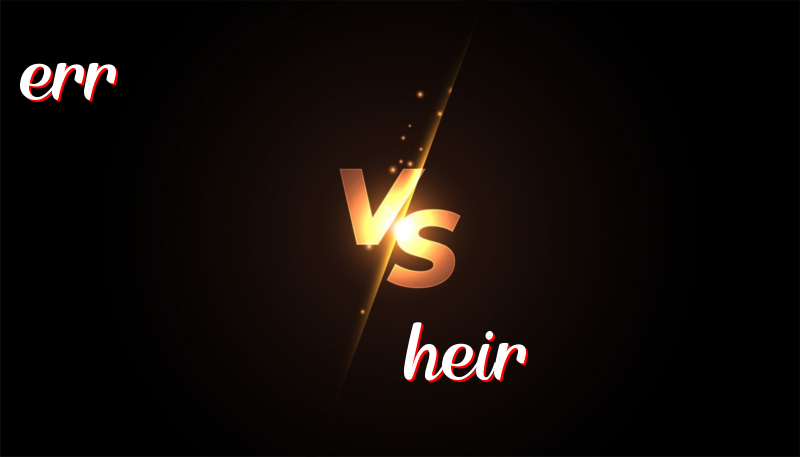The Difference Between Err and Heir
Err vs. Heir: What’s the Difference?
In English, two words that are often confused are “err” and “heir.” Let’s explore their meanings and differences to understand them better.
Err
History: The word “err” comes from Old French and Latin, meaning to make a mistake or be incorrect.
Usage: We use “err” when someone makes a mistake or does something wrong.
Examples of Err:
1. He errantly typed the wrong phone number into the system.
2. Sarah realized she had erred in her calculations after receiving the incorrect total.
3. The map directions were full of errors, causing the travelers to get lost.
4. Please forgive me if I err in my speech, English is not my first language.
5. It’s okay to err as long as we learn from our mistakes and try to do better next time.
Heir
History: The word “heir” comes from Old English and Old French, referring to someone who inherits property or a title.
Usage: We use “heir” when talking about someone who will receive money, property, or a title when someone else dies.
Examples of Heir:
1. William is the heir to the family’s fortune and estate.
2. The eldest son was named the heir to the throne after the king’s passing.
3. She will be the sole heir to her mother’s antique jewelry collection.
4. The billionaire has yet to decide who will be his heir and inherit his wealth.
5. As the only child, he knew he would be the heir to his parents’ wealth and assets.
Trick to Remember the Difference:
A useful trick to remember the difference between “err” and “heir” is to think of the extra “r” in “err” standing for “error” or “mistake.” Meanwhile, “heir” has an “he” at the beginning, indicating someone who’s set to inherit something.
Summary:
To summarize, “err” is used when referring to a mistake or being incorrect, while “heir” is used when talking about someone who will inherit money, property, or a title. Remember the extra “r” in “err” for “error” and the “he” in “heir” for “inheritance.”

Leave a Reply
You must be logged in to post a comment.